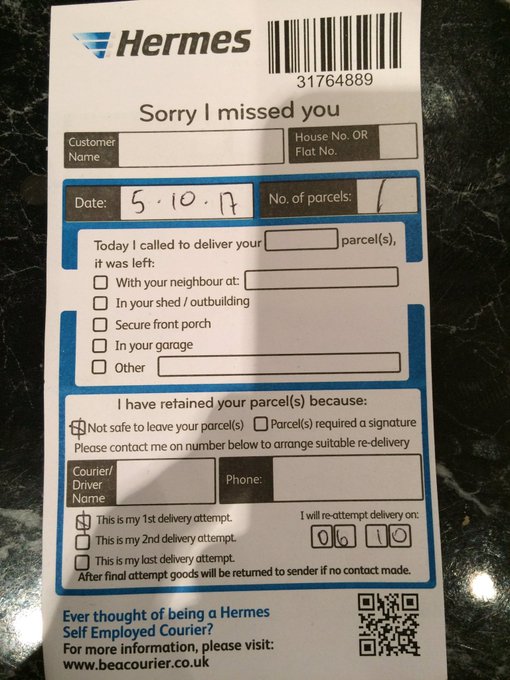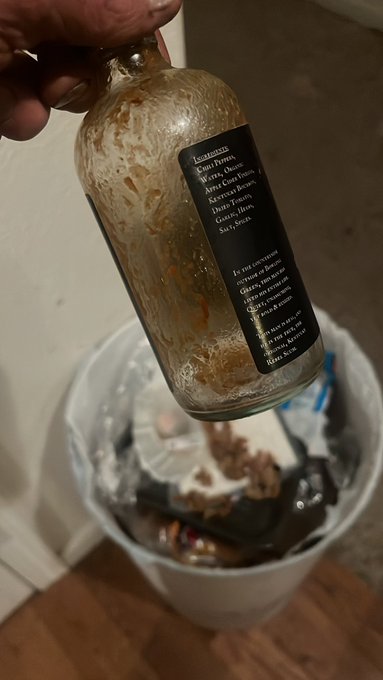Real Tricks Companies Don't Want You To Know

November 20, 2024
•18 min read
Here are some real tricks companies don't want you to know!
As companies strive for ever-increasing profits, it’s usually the customer who ends up paying the price, literally. But don’t worry, this article will put the power back in your hands. Prepare to get thrifty, as we check out some sneaky time-and-money-saving tricks companies don’t want you to know about.
Secret Price Tag Codes
Ever noticed seemingly-random letters and numbers handwritten onto price tags in stores? There’s actually an important reason behind them. Retail staff will often mark price-tags by hand with letter-number combos like ‘G3’ or ‘D17’.
Typically, the number tells you what price that item is going to be reduced to in an upcoming sale, and is usually used for staff reference and preparation. This is a handy piece of info for eagle-eyed, thrifty shoppers who want to find deals before they’re even announced. When you spot a marked item, you can either hold off purchasing it or try to reserve it until the price drops. Keep your eyes open for these sneaky little codes!Sorry, We Missed You!
In the modern age of online shopping, we now have the amazing convenience of same-day delivery. However, these game-changing systems come with problems of their own. For example, most of us know the frustration of reading the courier’s online tracking system’s most-despised update: the “Attempted Delivery” alert that claims that you missed the drop off. But as many people know, these attempted deliveries can be a complete lie.
Very unhappy customer- parcel will be sent back to sender today - 2 incomplete cards left & no contact details @myhermes #poorservice
Cancellations Fees Hack
Ever had to cancel a hotel room last minute because of some unforeseen, unavoidable, minor problem? The worst part is that canceling a hotel reservation typically means paying a cancellation fee, often upwards of 50 bucks. But there’s a smarter workaround that just might change your life. Simply call the hotel and move the reservation by a couple weeks.
Typically, hotels try to be accommodating to customers, as they really want to keep their sales, so they’ll usually move the date for free. With the date moved, just wait a day or so, so they don’t catch on to you, and cancel the reservation. As long as you’re outside of the cancellation window, which is usually 48 hours before arrival, there shouldn’t be any cancellation fees.
Countdown To Discounts
Discounts are a great way to boost companies’ sales, so it’s no surprise stores plan them out meticulously. But what most people don’t know is that many online stores launch sales at the same times. Generally, deals and discounts are launched between Tuesday and Thursday, with the highest concentration of deals happening in November and January.
So, if you’re looking to do some online shopping, wait for those thrifty mid-week deals. And if you’re looking to make a big purchase, it might be a good idea to hold off until later in the year, because statistically speaking, you’re much more likely to land a better price. But what if you make a purchase, only to find, days later, the price has dropped on the product, making it considerably cheaper than what you paid? Well, a post-purchase price-drop doesn’t have to be a source of helpless frustration! Many stores offer a price-difference refund to cover the price-drop for up to a month after your purchase. All you need to do is present your receipt, and they’ll either refund the difference, or fully refund the product and sell it through to you again at the new price!
Get Rid Of Telemarketers
Telemarketing calls are never fun, and all too often they’re just scams targeting your wallet. But the next time you get one of these calls, saying something along the lines of “oh, just let me set up audio recording for the FCC” can work wonders.
Mentioning an official body will send non-legitimate callers scurrying, and they’ll likely add you to a do-not-call list as a warning for their fellow scammers. If you live in Europe, simply mentioning “GDPR” will usually have a similar effect. This is because the data protection laws covered by GDPR, or General Data Protection Regulation, mean companies risk huge fines if they don’t comply with you after you’ve mentioned it. If those don’t work, the US has a federally-supported, “Do Not Call” list, that lets telemarketers know that calling you just isn’t worth their time. So, finally, you can hang up the phone on irritating telemarketers, for good.Shop Psychology
In most supermarkets, you’ll find essentials like bread and milk right at the back of the store. This is one of the oldest tricks in the book to get you to spend more. Stores know that, by placing staple goods towards the back, customers have to walk past all their other products. That’s when eye-catching product packaging and marketing kicks in, tempting you into unnecessary purchases along the way. To avoid this psychological manipulation, make a beeline for the stuff you want, keeping your eyes on the prize.
Abandoning Carts Hack
It’s not uncommon to be browsing online, see an item you want, click "add to cart" out of excitement, and change your mind about it at the last second. Or, more likely, receive a notification, leave the app, and just forget about it. Believe it or not, companies track that decision not to follow through. If you abandon your cart, within a couple of days, or sometimes hours, you’ll often receive coupons, or special deals on that item.
Time For A Bargain
If a stubborn car salesman just won’t budge to a reasonable price on that new vehicle you’ve been saving for, here’s another trick to keep up your sleeve. Most car dealerships set quotas for their sales force, alongside commission bonuses, every month. This means, if you go shopping towards the end of the month, the sales team will be more eager to pad out their numbers. They’re much more likely to cut you a better deal just to reach their targets at this time.

Don't Bulk-Buy
While a super-sized, seemingly-super-cheap multipack of items can be a very appealing thing to see on a trip to the supermarket, bulk-buying isn’t always the smartest choice. For starters, when you’re bombarded with signs touting “super deals” and “unbelievable savings”, the question of whether you really need that much of an item is easy to forget. For perishable goods like food, for example, bulk-buying won’t always work out cheaper if the food expires before you can eat it!
Panic buying in Malaysia escalated today following rumours of an impending lockdown. The Ministry of Domestic Trade and Consumer Affairs have warned people not to spread fake news on Covid-19. (📸: Farhan Yusoff & Shafwan Zaidon) #covid19 #panic #buying #groceries
Generic Over Branded
To many people, brand names represent a seal of superior quality, but that’s not always the case, particularly in supermarkets. For certain items, ranging from power tools to toothpaste, the name-brand product you buy in a supermarket like Wal-Mart isn’t the same quality as when purchased from specialist stores.
This is because supermarkets demand especially low prices from manufacturers in exchange for a place on their shelves. To meet these low prices, manufacturers supply supermarkets with a slightly-modified version of their product. In the case of power tools, this might mean a slightly smaller battery capacity, or lower-quality ingredients in shampoo or toothpaste. So, if you can’t live without branded stuff, avoid supermarkets if possible. That being said, branded goods are, sometimes, straight-up pointless to shell out extra cash for. This is particularly true for medicine, as the difference between name-brand medicines and store-brand is usually negligible. This is because the FDA and other similar government bodies across the world require generic drugs to have the same performance and quality as brand-name drugs. As generic and branded varieties both contain the same active ingredients, you’re really only paying extra for the name and fancy packaging. Considering generic brands can be up to 70% cheaper, it’s kind of a no-brainer, but many people, unaware of the identical active ingredients, incorrectly assume cheaper equals inferior. So, if you’re sick of being ripped off for painkillers and other medicine, always choose a store’s own-brand where available.Dilute Shampoo With Water
At some point, pretty much everyone has wondered why decent shampoo is so expensive. And while there’s no way to lower the price of a good hair product, you can easily extend, and even double, the amount of time it lasts for. Most shampoo is concentrated enough that it can easily be diluted with water and still carry out the same function.
Do you add a little water to your shampoo bottle to get and extra use or two out of it? @Half_A_Pond
Buying Glasses Online
Buying glasses from a high-street optician has always been the traditional route for anyone who needs them. But did you know buying glasses from an online retailer can actually save you anywhere from 30 to 75%? As long as you have your proper prescription form – which, unavoidably, does require an optician – there’s nothing stopping you from ordering your actual glasses online, and saving a considerable amount. If clear vision and bargains are in your sight, check out sites like Framesdirect and Zennioptical.
Use Live Chat For Deals
These days more and more online retailers have a live chat box on their sites that gives you the option to connect directly with their customer service team. While this is useful for queries about the store’s products, few people realize it can also be used to your advantage for saving money on your purchase.
As you’re speaking with a real person, they often have the ability to add discounts to your basket. So, speak to them politely, and when the time comes, don’t be afraid to ask if they can send any discounts your way. They may add one as a gesture of goodwill. Or, if not, they may be able to point you in the direction of a promotion, like 10% off if you sign up to their newsletter. This won’t always work, but it’s worth trying. After all, you’ve nothing to lose, and, as the saying goes, you don’t ask, you don’t get!Use A Different Name To Register
In our modern world, it’s pretty alarming just how commonly our personal data is traded and sold. Most of the time, this involves information you technically provide willingly being exchanged between companies for a fee. Your info is usually acquired when you sign up with a company if you don’t opt-out of being contacted for marketing purposes.
Seeing as opting-out sometimes requires actively requesting not to have your information shared, it can be tricky to prevent your phone number or email address ending up in some cold-calling company’s database. But you can save yourself some hassle by figuring out exactly who’s selling your data off to the highest bidder, so you know who to avoid. If you’re suspicious one of the companies, organizations, or services you’re signed up with might be selling your data, here’s a little trick to find out who’s responsible. When signing up for stuff like magazines or clothing stores sites, where you don’t need to verify your ID in any major way, register under a different name.Angry Customer's Priority
Calling tech support for help and being put on hold is infuriating. But though it seems to go against all rules of politeness, next time you feel a murderous rage building while on hold, go ahead and let it out. Scream and cuss at that phone until your vocal cords start unionizing against you. That's because many companies’ call centers now use Anger Profiling Software that detects screaming and swearing customers and automatically shifts them to the front of the queue.

Ghetto Big Mac
Next time you’re particularly hungry at McDonald’s but want to be kind to your wallet, here’s a tip. Order a double cheeseburger, ask them to add Mac Sauce and lettuce, and switch to a sesame bun. You may be shocked to learn that you’ve essentially made a Big Mac, and while the price of extras varies store-to-store, it probably cost you less than $2 total.
The only difference is one less piece of bread in the middle, and yet the Ghetto Big Mac usually costs less than half the price of a legit Big Mac. Oftentimes, companies realize the value of a named product and inflate the price based on a deceptive combo of familiarity and convenience. But don’t be fooled! Instead, be a little ghetto next time you’re in Mickey D’s.
Pizza Hut Pepperoni Hack
An equally-genius pizza equivalent of the ghetto Big Mac technique was shared on Reddit by ex-Pizza Hut worker, Zekken, in 2019. Zekken revealed that a pepperoni pizza would sell for $5, while ordering a double pepperoni cost $8. Asking for extra pepperoni on a regular pepperoni pizza, meanwhile, only cost $7 total. Despite what most customers assumed, that second option was literally the exact same thing as a double pepperoni pizza!

Prices Ending In 7, 8 or 1 May Indicate Clearance
Few shoppers realize that the final numbers of an item’s price reveal more than meets the eye. While a price that ends in a 9, like 4.99, is usually a standard price, prices ending in a 7 or 8 are a different story. These 7 or 8-ending prices are code for “Discontinued Item”. Knowing this may give you grounds to barter the price down further, as stores are often instructed to get rid of discontinued stock as quickly as possible.
Basket VS Shopping Cart
To the uninitiated, shopping carts seem like a great idea, letting you carry more products with a fraction of the effort. But next time you go to the store, consider just picking up a basket. Shopping carts are specifically designed to make you want to buy more. While their initial conception in the 1930s was indeed a matter of convenience, a more lucrative, secret function has since taken over.

Skiplagging
Air travel can be extremely expensive, and depending on the time of year, you may end up planning your entire trip on when you can actually afford to get there. But here’s a trick that airlines really don’t want you to know, because of how much you can save.
When buying flights to a location, it’s worth checking whether any cheaper flights to other destinations have a layover in the place you’re going to. If they do, simply get off the plane at the layover destination, and don’t board the plane for the second part of the journey. If you don’t check your luggage into the hold, there’s nothing to stop you leaving the airport.
Misleading Laundry Caps
Everyone likes the smell and feeling of clean clothes. But very few people realize the ‘fill’ lines on detergent caps recommend way more detergent than is required. This is a sneaky tactic on the part of detergent companies to get you to purchase bottles way more regularly than necessary. In reality, though, modern washing machines are efficient enough that only between one-eighth and one-half of the amount your detergent cap recommends is actually required for a good clean.
























![Embarrassingly Dumb Ways People Died - Darwin Awards Winners [Part 12]](https://beamazed.b-cdn.net/dfhvoxjgb/image/upload/v1717909879/embarrassingly-dumb-ways-people-died-darwin-awards-winners-part-4/27CzoCbBYD6rZUyXGoOuXF.jpg?width=400)





